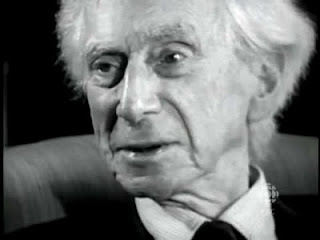Not to enchant but an unnamed need for order, for rhythm, for form, which three words are opposed to chaos and nothingness. --Czeslaw Milosz
30 September 2011
What is not shared....
"The truth is you already know what it's like. You already know the difference between the size and speed of everything that flashes through you and the tiny inadequate bit of it all you can ever let anyone know. As though inside you is this enormous room full of what seems like everything in the whole universe at one time or another and yet the only parts that get out have to somehow squeeze out through one of those tiny keyholes you see under the knob in older doors. As if we are all trying to see each other through these tiny keyholes.
But it does have a knob, the door can open. But not in the way you think. The truth is you've already heard this. That this is what it's like. That it's what makes room for the universes inside you, all the endless inbent fractals of connection and symphonies of different voices, the infinities you can never show another soul. And you think it makes you a fraud, the tiny fraction anyone else ever sees? Of course you're a fraud, of course what people see is never you. And of course you know this, and of course you try to manage what part they see if you know it's only a part. Who wouldn't? It's called free will, Sherlock. But at the same time it's why it feels so good to break down and cry in front of others, or to laugh, or speak in tongues, or chant in Bengali - it's not English anymore, it's not getting squeezed through any hole.
So cry all you want, I won't tell anybody."
- David Foster Wallace
Oblivion
29 September 2011
New Blog I like and will follow: The Last Psychiatrist
I really loved watching this video that was embedded in a blog I recently began to read. On its own there are valuable insights or more accurately, insights that confirm some of my own observations. Reading the blog after watching the video illuminated my superficial take. More importantly, it drove home the conundrum parenthood presents: having to sacrifice the impulse of the self to cater to the needs of the child.
It is much easier to be two kinds of people at two different times than it is to be two kinds of people at the same time.
--The Last Psychiatrist
I look forward to following the posts of this blogger. They provide very useful well thought through insights my lazy superficial mind so desperately needs.
23 September 2011
Only with Love

from: Predatory Wasp Observer
If a psychological problem were set to find means of making men of our time - Christian, humane, simple, kind people - perform the most horrible crimes without feeling guilty, only one solution could be devised: simply to go on doing what is being done now. It is only necessary that these people should be governors, inspectors, policemen; that they should be fully convinced that there is a kind of business, called Government service, which allows men to treat other men as things without having human brotherly relations with them; and that they should be so linked together by this Government service that the responsibility for the results of their deeds should not fall on anyone of them individually. Without these conditions the terrible acts I witnessed today would be impossible in our times.
It all lies in the fact that men think there are circumstances when one may deal with human beings without love. But there are no such circumstances. We may deal with things without love - we cut down trees, make bricks, hammer iron without love - but we cannot deal with men without it, just as one cannot deal with bees without being careful. If one deals carelessly with bees one will injure them and will one’s self be injured. And so with men. It cannot be otherwise, because mutual love is the fundamental law of human life.
It is true that a man cannot force another to love him as he can force him to work for him, but it does not follow that one may deal with men without love, especially if one demands or expects anything from them. If you feel no love, sit still,” Nekhyudov thought; “occupy yourself with things, with yourself, with anything you like, only not with men. Just as you can only eat without injuring yourself when you are hungry, so you can only usefully and without injury deal with men when you love. Only let yourself deal with a man without love, as I did yesterday with my brother-in-law, and there are no limits to the suffering you will bring on yourself, as all my life proves.
- Leo Tolstoy in Resurrection (1899)
21 September 2011
Sound Advice from another Century

In this world which is getting more and more closely interconnected we have to learn to tolerate each other. We have to learn to put up with the fact that some people say things that we don't like.
I think we ought always to entertain our opinions with some measure of doubt. I shouldn't wish people dogmatically to believe any philosophy, not even mine.
14 September 2011
The Silence

The Saviors of God - Spiritual Exercises
by Nikos Kazantzakis
THE SILENCE
- THE SOUL OF MAN IS a flame, a bird of fire that leaps from bough to bough, from head to head, and that shouts: "I cannot stand still, I cannot be consumed, no one can quench me"
13 September 2011
Bad Days
“This is about all the bad days in the world. I used to have some little bad days, and I kept them in a little box. And one day, I threw them out into the yard. “Oh, it’s just a couple little innocent bad days.” Well, we had a big rain. I don’t know what it was growing in but I think we used to put eggshells out there and coffee grounds, too. Don’t plant your bad days. They grow into weeks. The weeks grow into months. Before you know it you got yourself a bad year. Take it from me. Choke those little bad days. Choke ‘em down to nothin’. They’re your days. Choke ‘em!”
11 September 2011
Counsels and Maxims, by Arthur Schopenhauer Chapter IV, Worldly Fortune.

SECTION 52. What people commonly call Fate is, as a general rule, nothing but their own stupid and foolish conduct. There is a fine passage in Homer,54 illustrating the truth of this remark, where the poet praises [GREEK: maetis]— shrewd council; and his advice is worthy of all attention. For if wickedness is atoned for only in another world, stupidity gets its reward here — although, now and then, mercy may be shown to the offender.
54 Iliad , xxiii. 313, sqq.]
It is not ferocity but cunning that strikes fear into the heart and forebodes danger; so true it is that the human brain is a more terrible weapon than the lion’s paw.
The most finished man of the world would be one who was never irresolute and never in a hurry.
09 September 2011
Counsels and Maxims, by Arthur Schopenhauer

Chapter III.
Our Relation to Others.
— Section 21.
In making his way through life, a man will find it useful to be ready and able to do two things: to look ahead and to overlook: the one will protect him from loss and injury, the other from disputes and squabbles.
No one who has to live amongst men should absolutely discard any person who has his due place in the order of nature, even though he is very wicked or contemptible or ridiculous. He must accept him as an unalterable fact — unalterable, because the necessary outcome of an eternal, fundamental principle; and in bad cases he should remember the words of Mephistopheles: es muss auch solche Käuze geben34 — there must be fools and rogues in the world. If he acts otherwise, he will be committing an injustice, and giving a challenge of life and death to the man he discards. No one can alter his own peculiar individuality, his moral character, his intellectual capacity, his temperament or physique; and if we go so far as to condemn a man from every point of view, there will be nothing left him but to engage us in deadly conflict; for we are practically allowing him the right to exist only on condition that he becomes another man — which is impossible; his nature forbids it.
34 Goethe’s Faust , Part I.]
So if you have to live amongst men, you must allow everyone the right to exist in accordance with the character he has, whatever it turns out to be: and all you should strive to do is to make use of this character in such a way as its kind and nature permit, rather than to hope for any alteration in it, or to condemn it off-hand for what it is. This is the true sense of the maxim — Live and let live. That, however, is a task which is difficult in proportion as it is right; and he is a happy man who can once for all avoid having to do with a great many of his fellow creatures.
The art of putting up with people may be learned by practicing patience on inanimate objects, which, in virtue of some mechanical or general physical necessity, oppose a stubborn resistance to our freedom of action — a form of patience which is required every day. The patience thus gained may be applied to our dealings with men, by accustoming ourselves to regard their opposition, wherever we encounter it, as the inevitable outcome of their nature, which sets itself up against us in virtue of the same rigid law of necessity as governs the resistance of inanimate objects. To become indignant at their conduct is as foolish as to be angry with a stone because it rolls into your path. And with many people the wisest thing you can do, is to resolve to make use of those whom you cannot alter.
Counsels and Maxims by Arthur Schopenhauer

SECTION 29. It is often the case that people of noble character and great mental gifts betray a strange lack of worldly wisdom and a deficiency in the knowledge of men, more especially when they are young; with the result that it is easy to deceive or mislead them; and that, on the other hand, natures of the commoner sort are more ready and successful in making their way in the world.
--Counsels and Maxims, by Arthur Schopenhauer
06 September 2011
EL EMPLEO / THE EMPLOYMENT - OPUSBOU - YouTube
We have time to get it right. That is the purpose of Time, isn't it?
EL EMPLEO / THE EMPLOYMENT - OPUSBOU - YouTube
| The Temptation of Jesus | |
|
One final paragraph of advice: Edward Albee

One final paragraph of advice: Do not burn yourself out. Be as I am – a reluctant enthusiast, a part time crusader, a half-hearted fanatic. Save the other half of yourselves and your lives for pleasure and adventure. It is not enough to fight for the land; it is even more important to enjoy it. While you can. While it is still there. So get out there and mess around with your friends, ramble out yonder and explore the forests, encounter the grizz, climb the mountains. Run the rivers, breathe deep of that yet sweet and lucid air, sit quietly for a while and contemplate the precious stillness, that lovely, mysterious and awesome space. Enjoy yourselves, keep your brain in your head and your head firmly attached to your body, the body active and alive, and I promise you this much: I promise you this one sweet victory over our enemies, over those deskbound people with their hearts in a safe deposit box and their eyes hypnotized by desk calculators. I promise you this: you will outlive the bastards.
Edward Abbey
